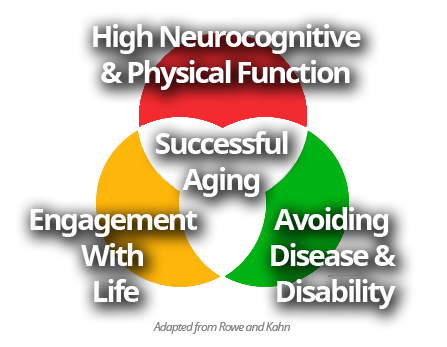
Keeping Neurocognitive Wellness Top of Mind!
About Neurocognitive Health
"The defining characteristics of these disorders are that their core or primary deficits are in cognition and that these deficits represent a decline from a previously attained level of cognitive functioning ..." Source: DSM-5 Neurocognitive disorder working group.
Much like physical health, neurocognitive health can be viewed as a journey from optimal, healthy functioning to mild cognitive impairment to severe dementia. Mental decline may not be an inevitable part of aging. Normal aging is a gradual process that comes with certain changes in mental function. It is important to measure and monitor brain function performance under challenge with a non-painful procedure called neurocognitive testing..
Measure and Evaluate Brain Performance
About Cognitrax?
Cognitrax is powered by CNS Vital Signs neurocognitive assessment technologies; the leader in clinical use with over 7000 clinical users and over 2000 clinical investigators and researchers in 52 countries. Cognitrax enables an objective longitudinal assessment of a patient's "CORE" neurocognitive function using computerized neuropsychological tests. It can assist in the recognition and evaluation of Neurodegenerative Disorders (e.g., MCI - Mild Cognitive Impairment, Early Dementia, etc.) helping clinicians detect and track even subtle cognitive deficits and variations.
Cognitrax automates the precise psychometric (speed and accuracy of responses with no rater bias) measurement of a patients neurocognitive function. Cognitrax domain scores are presented as Subject (raw) Scores, Standard Scores, and Percentile Ranks computed from calculations using the data values of individual subtests and are simply the number of correct responses, incorrect responses, and reaction times. Cognitrax grades the severity of impairment based on an age-matched normative comparison database with lifespan norms from ages 8 to 90.
"Diseases of the brain commonly produce changes in behavior, including impairment of cognitive abilities and production of neuropsychiatric symptoms. Knowledge of the presence and characteristics of these changes can aid in the evaluation, management, and longitudinal care of patients with neurologic and psychiatric diseases." Adapted from: Neurology 1996;47:592-599
Manage and Monitor Brain Performance
New guidelines emphasize the importance of neurocognitive serial evaluation. Cognitrax is optimized for serial assessments.
"2.2.3. Longitudinal cognitive evaluation: Evidence of progressive decline in cognition provides additional evidence that the individual has 'MCI due to AD,' as noted earlier in the text. Thus, it is important to obtain longitudinal assessments of cognition, whenever possible. It is recognized that a diagnosis will likely need to be given without the benefit of this information; however, obtaining objective evidence of progressive declines in cognition over time is important for establishing the accuracy of the diagnosis, as well as for assessing any potential treatment response." Source: Alzheimer's & Dementia - (2011) 1-10; The diagnosis of mild cognitive impairment due to Alzheimer's disease: Recommendations from the National Institute on Aging and Alzheimer's Association workgroup.
Cognitrax's primary function is to (measure) serve as an instrument, to detect early cognitive impairments and identify symptoms, behaviors and comorbidities that can impact health. Secondly, is to augment data generated from the clinical history, the examination and other tests (evaluate). Thirdly, to longitudinally track cognitive function (manage & monitor).
Cognitrax® is a registered trademark of CNS Vital Signs, LLC. Copyright © 2025 CNS Vital Signs. All Rights Reserved.
Use of CNS Vital Signs Products and Website constitutes acceptance of the CNS Vital Signs Terms of Service and Privacy Policy.
